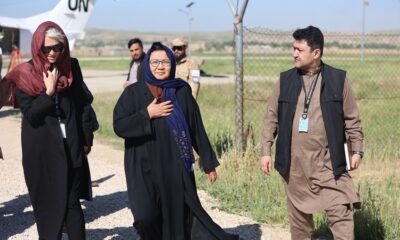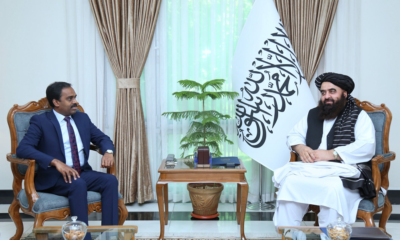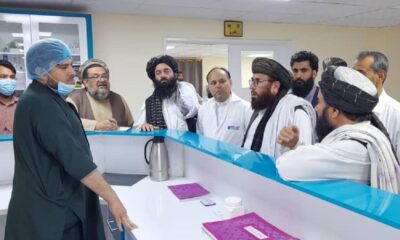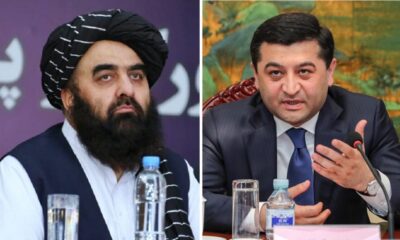Latest News
Habiba Sarabi the lone woman in a room full of men at Moscow meeting
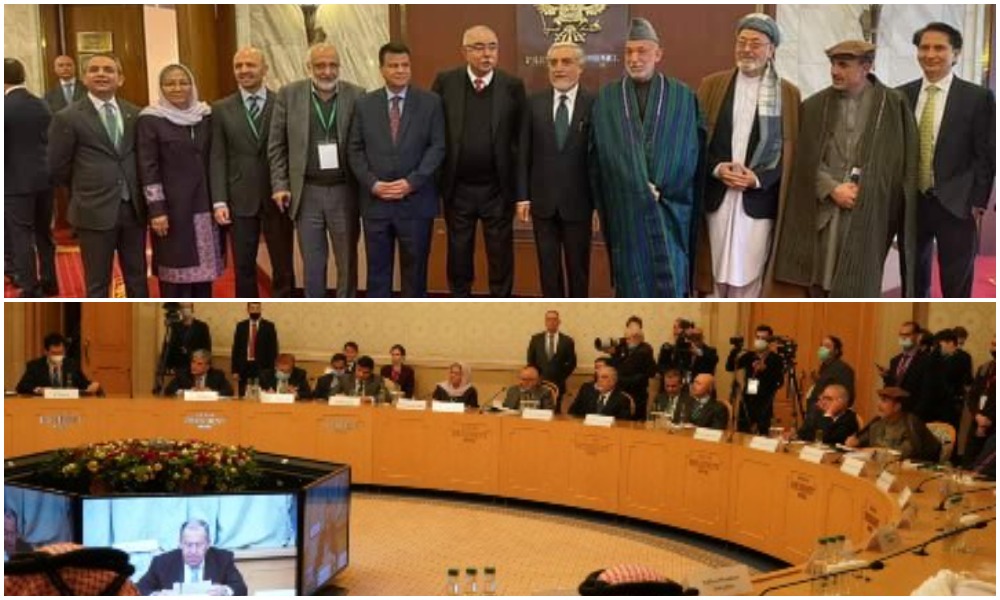
Despite repeated pledges by the Afghan government and the country’s politicians to include women in decision making processes, Thursday’s grand meeting in Moscow on the peace process indicated otherwise.
As delegates filed into the meeting room – it quickly became clear that among the dozens present, all were men – except for one.
Habiba Sarabi was the only female among the Afghan delegates – which included the Afghan government, the Taliban and individuals from Afghanistan who were sent invitations by Moscow.
Sarabi was the lone female voice in a room full of men.
In a tweet after the meeting, Sarabi made her feelings on the matter clear and said in reference to the Turkey meeting in April: “I hope I will not be the only woman at the next summit.”
Coming out in support of Sarabi was Nader Nadery, a fellow Afghan Republic peace talks team member, who said after the meeting that Sarabi “said in her remarks to the room full of men: why I should be the only woman in the room? We have not been part of the war, we can certainly contribute to peace. 51% of people should not be ignored. Hope hosts take note of it for the future.”
Nadery also stated that he hopes an “equal number of women on tables should become the norm. Proud of Sarabi Habiba.”
Shaharzad Akbar, chairperson of the Afghanistan Independent Human Rights Commission (AIHRC) also questioned this imbalance.
She said in a tweet: “Based on media reports, some of the invitations for Moscow event were delivered to specific individuals. Why didn’t Russia include a single Afghan woman on that list? There was also an invitation to Afghan government presumably, why wasn’t that invitation utilized to send four women negotiators?”
Even Ashraf Haidari, Afghanistan’s Ambassador to Sri Lanka, weighed in. He said in a tweet: “The presence of articulate women slowly diminished in peace meetings. Their substantive input and leadership in any peace engagement is naturally needed, as they speak for two thirds of any population, including children they nurture. Moscow wouldn’t care. Every Afghan must!”
This sentiment was shared by many including Human Rights Watch interim co-director, women’s rights division Heather Barr who quite bluntly said: “So easy for all the men – of varying, but not too varying, levels of misogyny – to snuggle up and make friends when they only let one woman in the room.”
Even Lyse Doucet, the BBC’s Chief International Correspondent commented. She said: “Strong voices of Afghan women. Is that why they don’t want more at the table?”
Soon after the start of the intra-Afghan talks in Doha, in September last year, Oxfam, Cordaid and InclusivePeace released a report stating that nearly 80 percent of Afghanistan’s peace tables, since 2005, have excluded women.
At the time, the report stated that without the meaningful participation of women, any sustainable peace efforts are at risk of failure.
The joint report Because She Matters, highlighted tangible ways to ensure women’s propositions and concerns are reflected in the negotiation process. It also showed that peace is more attainable when women have a place at the table, as peace agreements are 35 percent more likely to last beyond fifteen years when women effectively engage in them.
“Continued exclusion of women from Afghanistan peace efforts and decision-making will not only jeopordise the realisation of a true and sustainable peace, but blatantly disregard women’s rights to define their own future. We fear hard-won gains in women’s rights could be reversed”, said Ashish Damle, Oxfam’s Country Director in Afghanistan.
“Continued exclusion of women from Afghanistan peace efforts and decision-making will not only jeopordise the realisation of a true and sustainable peace, but blatantly disregard women’s rights to define their own future.”
During the meetings between the US government and the Taliban in Doha in February last year that set the stage for the start of the intra-Afghan peace process in September, not one woman was included in the conversation; and consequently women’s rights were not mentioned in the resulting deal struck a year ago.
“Despite seeing a small number of Afghan women represented in peace processes, Afghan women’s voices are largely marginilized. The intra-Afghan peace process, at all stages and levels, needs to do much better,” added Damle in September last year.
Latest News
UNAMA chief visits northern Afghanistan, meets local officials including women
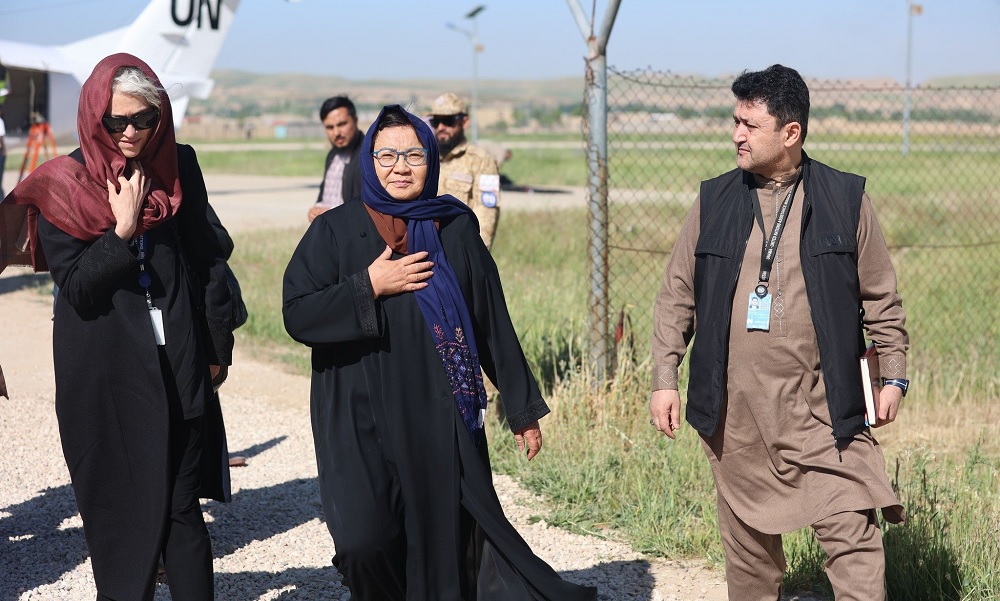
Roza Otunbayeva, Head of the United Nations Assistance Mission in Afghanistan (UNAMA), recently visited the city of Maimana in northern Afghanistan, where she met with local officials, entrepreneurs, and UN staff.
UNAMA wrote on its Facebook page on Sunday, that during the visit, entrepreneurs — including women — met with Otunbayeva, and requested support to facilitate access to new markets, particularly in Uzbekistan.
UNAMA further stated that among these entrepreneurs was a group of women who, with the support of the United Nations Development Programme (UNDP), had established a tailoring workshop.
They expressed their appreciation for the support received and spoke about the significant growth and development of their business.
UNAMA added that the organization remains committed to promoting economic opportunities and empowering Afghan communities, especially women.
Latest News
Senior Indian official meets with FM Muttaqi in Kabul
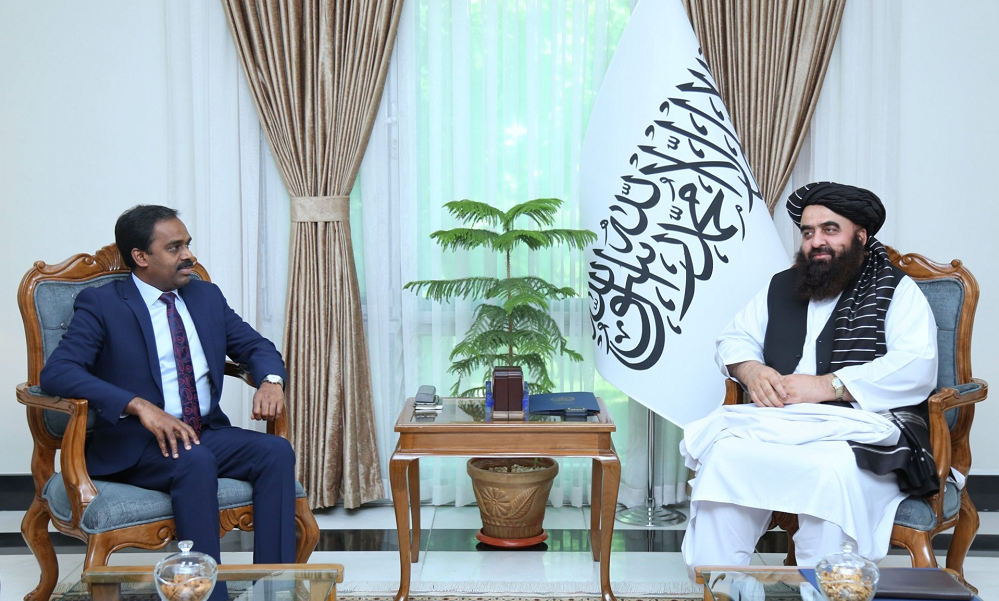
Anand Prakash, head of the Afghanistan, Iran and Pakistan Division of the Indian Ministry of External Affairs, met with Acting Foreign Minister Amir Khan Muttaqi in Kabul for talks on various issues.
According to a press release issued Sunday by the Afghan Foreign Ministry, bilateral political relations, trade, transit and recent political developments in the region were discussed in the meeting.
Muttaqi stressed the need for the expansion of diplomatic and economic relations between the two countries and explained that Afghanistan currently offers favorable opportunities for investment. He said Indian investors should take advantage of these opportunities.
He also said that facilities should be created for the movement of people between Afghanistan and India and the issuance of visas for medical purposes, students and businessmen should return to normal.
Meanwhile, Prakash said that relations with Afghanistan are important for India and he hopes that these relations will expand further in various fields.
He stressed that India will continue its cooperation with Afghanistan and wants to invest in some infrastructure projects and restart projects that were paused for some time.
The two sides also emphasized the expansion of relations, the exchange of delegations, visa facilitation and bilateral cooperation.
Latest News
Afghanistan ‘fully ready’ for Trans-Afghan railway project: Muttaqi
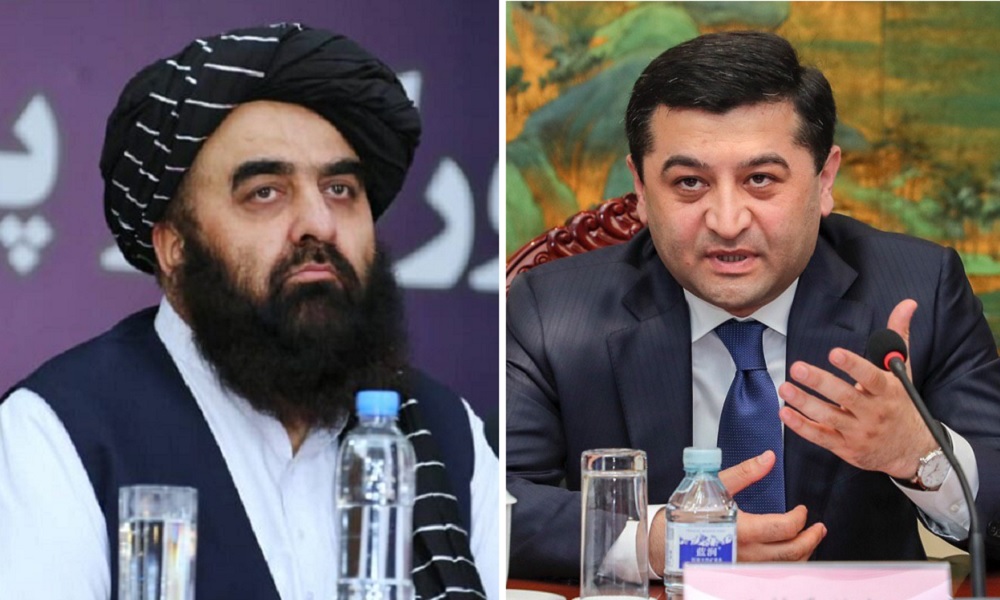
Acting Foreign Minister Amir Khan Muttaqi has said in a phone call with his Uzbek counterpart that Afghanistan is fully prepared for the implementation of the Trans-Afghan railway project.
During the call, the two sides discussed strengthening bilateral and multilateral relations, as well as expanding political, economic and transit cooperation, the Ministry of Foreign Affairs in Kabul said in a statement on Sunday.
Uzbek Foreign Minister Bakhtiyor Saidov noted that Afghanistan’s exports to Uzbekistan have tripled in the first four months of 2025 compared to last year. He vowed to create more facilities in the field of trade and transit between the two countries, especially in issuing visas to Afghan citizens.
Meanwhile, Amir Khan Muttaqi said that Afghanistan is fully prepared for the implementation of major economic projects such as the Trans-Afghan railway project and for the strengthening of political, trade and transit cooperation with Uzbekistan. He said that the existing opportunities should be utilized for the mutual benefit of the two countries.
The two sides also discussed the holding of a trilateral meeting between Afghanistan, Uzbekistan and Pakistan at the level of foreign ministers and agreed to coordinate through diplomatic channels to determine the exact date and place of the meeting.
The three neighboring countries signed an agreement in February 2021 to construct a 573-kilometer railway line through Afghanistan, connecting landlocked Central Asia to Pakistan seaports, with an estimated cost of $4.8 billion to enhance regional economic connectivity.
Pakistan’s Deputy Prime Minister and Foreign Minister Ishaq Dar held a telephone conversation with Uzbek foreign minister last Thursday to discuss the Trans-Afghan railway project.
Dar expressed hope that the three countries would soon sign a framework agreement on this important regional project.
-

 Sport4 days ago
Sport4 days agoSri Lanka A defeats Afghanistan A by 4 wickets in Abu Dhabi
-

 Business5 days ago
Business5 days agoAfghanistan’s growth prospects remain uncertain amid global uncertainty: World Bank report
-
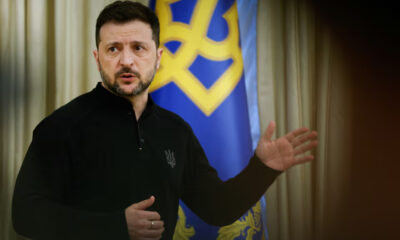
 World5 days ago
World5 days agoUkraine ready to hold talks with Russia once ceasefire in place, Zelenskiy says
-

 Latest News4 days ago
Latest News4 days agoAWCC activates new site in Nangarhar’s Kuz Kunar district
-

 Latest News4 days ago
Latest News4 days agoTarig Ali Bakheet and Japan’s Deputy Foreign Minister discuss Afghanistan’s situation
-

 Climate Change4 days ago
Climate Change4 days agoPowerful earthquake of 6.2 magnitude shakes Istanbul
-

 Business3 days ago
Business3 days agoPakistan’s deputy PM discusses Trans-Afghan Railway Line project with Uzbek FM
-

 Latest News4 days ago
Latest News4 days agoSpecial meeting will be held to launch Afghanistan–Russia joint commission, says Kabulov


